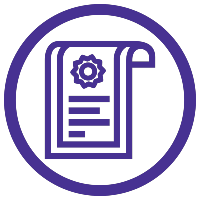P-IE
Student Competition 10-Minute Paper
Grad 10-min: P-IE, Vectors of Plant Disease
The effect of antibiotic use in citrus on Candidatus Liberibacter asiaticus acquisition and vector fitness
On-Demand
- ER
Erik L. Roldan, Sr. (he/him/his)
University of Florida
Lake Alfred, Florida .jpg)
Kirsten S. Pelz-Stelinski (she/her/hers)
University of Florida
Lake Alfred, Florida
Presenting Author(s)
Co-Author(s)
Huanglongbing (HLB), or citrus greening disease, is the most destructive citrus disease worldwide. Candidatus Liberibacter asiaticus (CLas), the putative causal agent of HLB is transmitted by the Asian citrus psyllid, Diaphorina citri Kuwayama (Hemiptera: Liviidae). In Florida D. citri was firstly reported in 1998 and CLas was confirmed in 2005. Additionally, D. citri damages citrus during phloem feeding on young shoots and leaves. Management of HLB relies on the use of insecticides to reduce vector populations. Recently, antibiotics have been approved for use in citrus to reduce CLas infection. Previous work has demonstrated that reductions in endosymbiont abundance in their insect host corresponds with a reduction in host fitness. We hypothesized that antibiotic applications in trees will disrupt CLas acquisition and negatively affect D. citri fitness. In this study, we evaluated the effect of antibiotic applications on CLas acquisition, D. citri abundance, and CLas titer in citrus. Our results suggest that antibiotic treatment could reduce D. citri abundance and CLas acquisition by D. citri.


